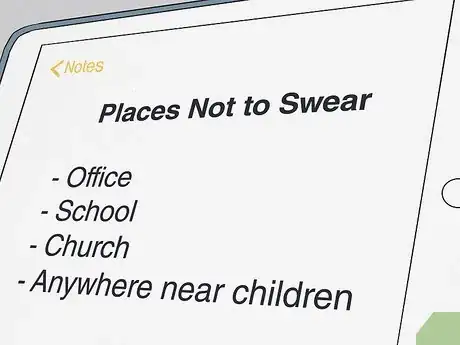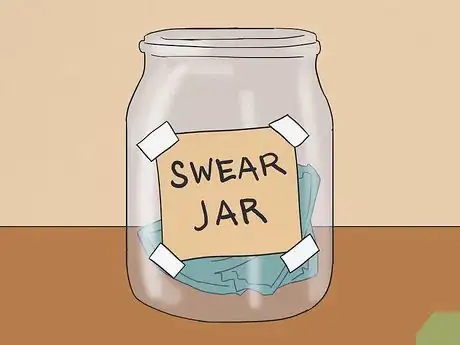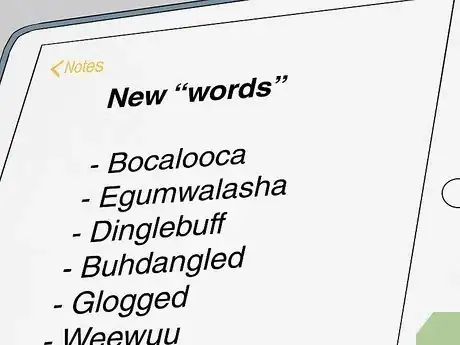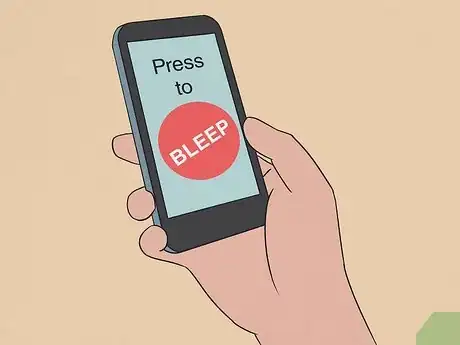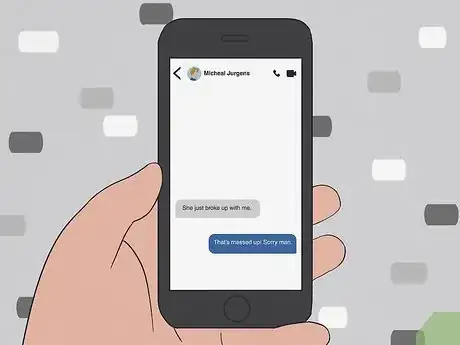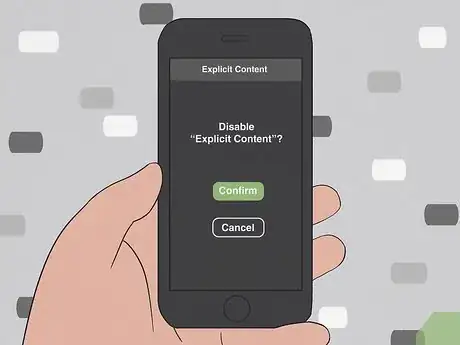This article was co-authored by Kathy Slattengren, M.Ed.. Kathy Slattengren is a Parent Educator and Coach and the Founder of Priceless Parenting. With over two decades of experience, Kathy specializes in helping parents build strong, loving relationships with their children. She has helped thousands of parents around the world through Priceless Parenting's online classes, presentations, coaching, and books. Kathy holds a Bachelor's degree in Computer Science and Psychology from The University of Minnesota and a Masters degree in Education and Instructional Design from The University of Washington. Kathy is a member of the National Parenting Education Network, the US Alliance to End the Hitting of Children, the International Society for Technology in Education, and a founding member of Parent Learning Link. Priceless Parenting has been featured on ABC News, Komo News, King 5 News, National PTA, Parent Map, and Inspire Me Today.
There are 16 references cited in this article, which can be found at the bottom of the page.
This article has been viewed 191,456 times.
Though you may not realize it, swearing actually offends people. Furthermore, many people who are offended are slow to make it known for fear of ridicule. By paying careful attention to how you swear, and developing some creative, less offensive alternatives, you can avoid the problem. Avoiding swearing can also make you appear more polite and professional in the workplace, at school, and in public.
Steps
Figuring Out How You Swear
-
1Make notes on how you swear. Brainstorm all of the swear words you use, and make notes on when you use them (when joking with friends, when you are angry, when you stub your toe, etc.).[1] Knowing how and when you swear is the first step in figuring out inoffensive replacements.
- For instance, you might be able to identify your number one swear word, and start by replacing just that one.
- Think about both when and why you swear. Do you swear to impress friends? Out of habit? Because other people around you do?
-
2Think about where you can and cannot swear. You might be interested in limiting or eliminating your swearing in certain contexts, such as when you are at school or work.[2] [3] However, you might be fine with swearing in other contexts, such as when you are at home or hanging out with friends. When trying to replace swear words with inoffensive alternatives, you might first try to replace them in only one context, before moving on to others.
- Talk to yourself about it.
- Understand that everyone is prone to making something a habit.[4]
- Think about your cousins or family members, or read newspaper stories about people who had to face the consequences of such behavior.
Advertisement -
3Consider using a reward system to motivate yourself. You can help yourself consistently replace swear words with inoffensive alternatives if you reward yourself when you are successful.[5]
- You can try a positive reward system. For instance, you can buy yourself a new pair of shoes if you make it through a week of replacing swear words.
- You could also try a negative motivator. For instance, you can make yourself put a dollar in a jar each time you use a swear word.[6]
-
4Think about what you are trying to say when you swear.[7] Sometimes, swear words are used in ways that are far different that their actual meaning. Start thinking about what you are really trying to say when you swear, so that you can develop a list of good alternatives.
- For instance, the “B” word technically means “female dog,” while the “A” word means donkey, and the "D" word means wishing one person to an evil place, yet all of these words convey very different meanings when used as swear words.
- Sometimes, swear words are used when a more precise word or phrase could be used to express a thought or feeling. For instance "This exam really f***ed me over" doesn't really say much, while "I didn't do well on this exam because I hadn't studied enough for the section on thermal dynamics" is much more specific.
Finding Alternatives to Swearing
-
1Use euphemisms. Euphemisms are relatively harmless words or phrases that are used in place of more offensive ones.[8] Using a euphemism instead of a swear word is a quick an easy way to clean up your vocabulary. Many existing swear words also have common euphemisms. For instance, try saying:
- “Funk!” instead of “f***!”
- “Darn!” instead of “damn!”
- “What the eff?”, "What the heck?", or "What the barnacles?" instead of “What the f***?”. Also "What the hell?" (acceptable with limitations).
- “SOB” instead of “Son of a b****”
- “BS” instead of “bull s***!”
- “Screwed up," "stinks," or "sucks" instead of “f***ed up”
- “Goofball” instead of “dumba**”
- "Rats!" instead of "crap!" or "s***!"
-
2Invent new, inoffensive expletives to use instead of swear words.[9] Since these words are newly invented, they won’t offend some people like swear words will.[10] Use your imagination to invent replacement words and phrases like:
- "Boccalocca"
- "Egumwalasha!"
- “Dinglebuff”
- “I literally buhdangled my pants”
- “He was so glogged up”
- “I got my weewuu beat at bowling last night”
- “I can’t find my nogwrangling keys!”
-
3Use outdated swear terms. Some words that were once used as offensive swear words have either become more acceptable, or have generally been forgotten. You can have fun researching some of these words and phrases, and practice using them to replace contemporary swear words.[11] Some examples include:[12] [13] [17]
- “Consarn it!” instead of “damn it!”
- “Zooterkins” (a seventeenth-century term for “God’s wounds!” or “Zounds”!)
- “Sard” (an Old English term for f***)
- “Waesucks” (means “woe’s sakes,” but can be used in place of "s***!")
- “Gadzbudlikins!” (unknown derivation)
- “Fopdoodle” for “dumba**”
-
4Borrow fictional swear words. Science fiction books, films, and television shows often invent alternative languages, including swear words. You can use some of these as less offensive replacements for swear words. For instance:[15]
- “Ying-takh!” or “puh-takh,” from Klingon, to replace the “S” or “F” words.
- “Frack” or “frak” from Battlestar Galactica, to replace the “F” word
- “Goram,” from the Firefly series, to replace “G** d***!”
-
5Swear in a foreign language. You can use swear words from foreign languages as replacements. Since others around you may not know the foreign language, the replacement word will be less offensive. Avoid using swear words from a foreign language around others that speak that language, however. Some examples of foreign swear words include:[16]
- “Scheisse” (pronounced “shy-seh”), German for “s***”
- “Aborder,” Cajun for “f***”
- “Culo,” Spanish for “a**”
- “Perfututum,” Latin for “totally f***ed”
-
6Bleep yourself. Television, radio, and other media sources often use a “bleep” or “beep” sound to censor swear words and other undesirable or offensive phrases. You can adopt the same approach. Any time you feel the urge to swear, just say “bleep!” For example:
- “This bleeping movie is stupid!”
- “I lost my bleeping phone!”
- “I’m so bleeped.”
-
7Speak eloquently. Circumlocutions, or ways of getting around saying something that you don’t want to or shouldn’t, can be used as another way of replacing swear words.[17] They can also be an opportunity for you to practice speaking creatively and eloquently, and to have fun while doing it. For instance, try saying:
- “By the beard of Zeus, I declare: I have lost my keys and this has thrown me into a woefully anguished state of mind” instead of “I can’t find my keys. I’m so f***ed.”
- “That motorist displayed neither noble character nor common decency when our paths crossed” instead of “I can’t believe that f***ing jacka** cut me off at the four-way stop!”
- “Woe is me! My addled brain confounded my feet, and I have unfortunately collided with this rock!” instead of “S*** I just stubbed my toe on this f***ing rock!”
Continuing Clean Language
-
1Keep a vocabulary list of the new, less offensive words and phrases you have learned and are practicing. Writing down and memorizing words and phrases to replace profanity will help you remember to use them. You can also have fun learning new replacement words.
-
2Stop using swear words in writing. Once you start removing or replacing swear words from you spoken vocabulary, you might want to start cleaning up your writing as well. Texts, emails, and other common forms of writing are all contexts in which you might swear. Since it is hard to guarantee that information will be kept private once it is written down, you can use less offensive language in these contexts. You never know when your boss will check your social media accounts, for example! Some techniques include:
- Using Grawlix. Grawlix is a string of typographic characters meant to represent profanity without actually writing the word. For example, you can type “#$&*” instead of “s***,” or “*&#%!” instead of “f***!”
- Use combinations of letters, numbers, and symbols to form nonsense words that resemble swear words. For example, “5h17” instead of “s***,” or “13itch” or “81tc#” instead of “b****”
- Use acronyms instead of full phrases. For example, “WTF” instead of “what the f***,” or “SOB” instead of “son of a b****”
-
3Use apps to remove swear words electronically. Certain apps, such as Clean Reader, have been developed to remove swear words from e-books.[18] [19] Similarly, certain media players, such as iTunes, allow you to select a “clean” setting that removes explicit songs when listening to your music.[20] Using these apps may help reduce the amount you curse by exposing you to fewer swear words.
- These apps cannot remove swear words from printed texts, obviously.
Community Q&A
-
QuestionShould I use funny words instead of a bad word?
 Community AnswerYes. This makes it less offensive and funnier. It also lightens up the mood.
Community AnswerYes. This makes it less offensive and funnier. It also lightens up the mood. -
QuestionWhy are swear words offensive?
 Community AnswerBecause society has given words connotations over the years, giving "offensive" words a meaning that some find less than desirable. Especially in more conservative places, a lot of these words have become taboo, which has increased peoples' fear of them. It's like in Harry Potter, people couldn't even say the name "Voldemort" because nobody said it and there had become a massive stigma around using it. Basically, it's society's fault and has nothing to do with the word itself.
Community AnswerBecause society has given words connotations over the years, giving "offensive" words a meaning that some find less than desirable. Especially in more conservative places, a lot of these words have become taboo, which has increased peoples' fear of them. It's like in Harry Potter, people couldn't even say the name "Voldemort" because nobody said it and there had become a massive stigma around using it. Basically, it's society's fault and has nothing to do with the word itself. -
QuestionWhy would someone start cursing in the first place?
 Community AnswerIt just kind of happens if you listen to music, watch movies or hang out with people that swear. The best thing to do is limit your exposure.
Community AnswerIt just kind of happens if you listen to music, watch movies or hang out with people that swear. The best thing to do is limit your exposure.
References
- ↑ http://oaktrust.library.tamu.edu/bitstream/handle/1969.1/153549/Interventions%20for%20swearing.pdf
- ↑ http://www.askamanager.org/2011/05/swearing-in-the-workplace.html
- ↑ https://www.nea.org/tools/16342.htm
- ↑ https://www.elle.com/beauty/health-fitness/advice/a2495/bad-habit-swearing/
- ↑ http://oaktrust.library.tamu.edu/bitstream/handle/1969.1/153549/Interventions%20for%20swearing.pdf
- ↑ https://www.mentalfloss.com/article/567340/how-to-swear-less-5-methods-you-can-try
- ↑ http://oaktrust.library.tamu.edu/bitstream/handle/1969.1/153549/Interventions%20for%20swearing.pdf
- ↑ http://journals.plos.org/plosone/article?id=10.1371/journal.pone.0022341
- ↑ http://oaktrust.library.tamu.edu/bitstream/handle/1969.1/153549/Interventions%20for%20swearing.pdf
- ↑ https://www.tennessean.com/story/life/entertainment/12th/2019/07/19/50-curse-words-alternatives/1673915001/
- ↑ https://www.mentalfloss.com/article/567340/how-to-swear-less-5-methods-you-can-try
- ↑ http://mentalfloss.com/article/49652/10-old-fashioned-swears-spice-your-cussin
- ↑ http://matadornetwork.com/life/21-amazing-forgotten-curse-words-need-bring-back/2/
- ↑ Oxford English Dictionary (OED) Online. Oxford University Press.
- ↑ http://itre.cis.upenn.edu/~myl/languagelog/archives/003235.html
- ↑ http://www.self.gutenberg.org/articles/spanish_profanity
- ↑ http://web.cn.edu/kwheeler/lit_terms_C.html
- ↑ http://www.theguardian.com/books/booksblog/2015/mar/16/ebooks-app-clean-reader-replace-swearwords
- ↑ https://www.washingtonpost.com/news/style-blog/wp/2015/03/06/this-freaking-app-can-sanitize-the-heck-out-of-any-book/
- ↑ http://www.cultofmac.com/327969/how-to-remove-swears-from-apple-music/
About This Article
If you want to watch your language, you can replace common swear words with less offensive versions so you don’t offend anyone. You might even make the person laugh instead. Think about all the words you usually say, then find replacements for them. For example, you can say funk or fudge instead of the F word, darn instead of damn, and messed up instead of F’d up. You can also say what the heck instead of what the F and crud or rats instead of crap. If someone’s being an idiot, call them a goofball or doofus instead of a more offensive word. For more tips, including how to censor your swear words over text, read on!

